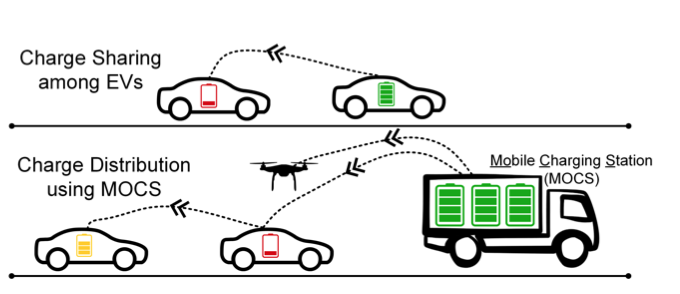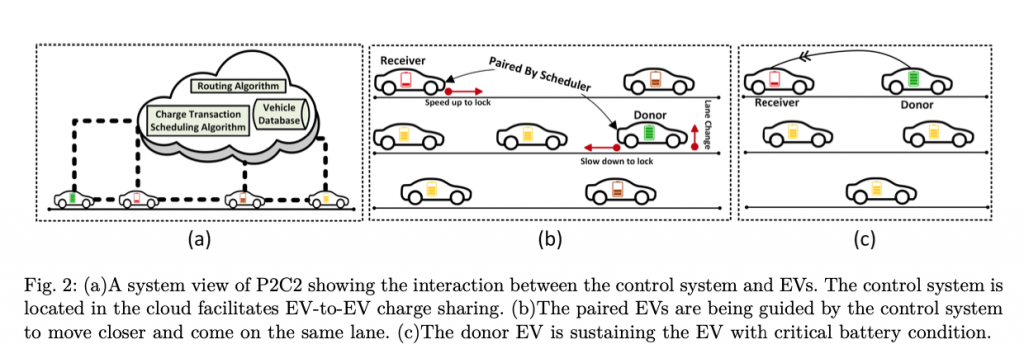While electric vehicles (EVs) are a critical part of envisioning a future without the internal combustion engine (ICE), there is still much work to be done before EVs are a practical means of long-distance travel in the United States. Current U.S. infrastructure and limited battery capacities have proved to be the limiting factors. A novel system proposed by Dr. Swarup Bhunia and researchers at the Warren B. Nelms Institute for the Connected World aims to remove the limiting factor by combining cloud computing, 5G connectivity, machine learning, and automotive automation systems to create what they call Peer-to-Peer Car Charging. The system is outlined in a paper recently accepted by the Spring 2020 IEEE 91st Vehicular Technology Conference.
As the video simulation illustrates, the system essentially brings the charging station to the donor vehicle, rather than the inverse. The system recognizes that an EV is in need of a charge and automatically pairs it with either a donor EV from which to share a charge, or a Mobile Charging Station (MOCS). The cloud-based scheduling system would guide the donor vehicle to the receiver car where they would pair, locking in speed and navigation, and through interlocking arms and charging ports, the donor vehicle would charge the receiver car while still in motion.
The proposed system uses complex algorithms to maintain a sort of holistic charge distribution map. The EVs continually send location and charge information to the control system. The data is then fed to the charge transaction scheduling unit, a rerouting unit, and a database for storing the information from EVs. The control system instructs some EVs to share charge with some other EVs, reroutes specific EVs to bring charge providers and receivers together, and then speed locks EVs to allow seamless charge sharing via the arms and charging ports. Once the charge has been shared from donor to receiver EV, the two vehicles separate and continue on their journeys.
The hope with this type of smart, scalable system is to increase the functional range of EVs while adding a layer of smart, efficient management of resources. The system views electric charge as a resource to be shared and distributed efficiently to the vehicles that need it—the charge comes to the car, rather than the car needing to find the charge.
The paper was co-authored by ECE PhD students Prabuddha Chakraborty, Robert C. Parker, Tamzidul Hoque, Jonathan Cruz, and Director of the Warren B. Nelms Institute for the Connected World and Semmoto Endowed Professor Dr. Swarup Bhunia, with significant contributions from Dr. Shuo Wang and Dr. Lili Du.


